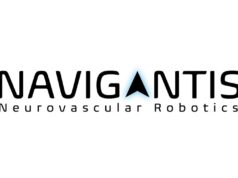Medtronic has announced the initiation of a prospective, multicentre, randomised USA clinical trial for the RestoreSensor neurostimulator that adapts therapy to the changing needs of chronic pain patients by responding automatically to changes in body position and activity in an upright position.
The RestoreSensor neurostimulator received CE Mark approval in Europe and is under investigational use in the USA. The clinical trial will evaluate the benefits of the unique AdaptiveStim feature of the RestoreSensor device that uses a cutting-edge, proprietary smart technology for the first time in an implantable medical device for the treatment of chronic pain. Physicians at ten medical centres in the USA will be enrolling patients in this study. The first implant of a RestoreSensor neurostimulator in the study was performed by David Schultz, at MAPS Pain Clinic in Minneapolis, USA.
“Neurostimulation offers patients a therapy that has been clinically proven to provide pain relief, but there is variance in the device settings required to maximise the pain relief and comfort based on a patient’s activity,” said Schultz, founder and medical director of MAPS Pain Clinics and MAPS Applied Research Center (MARC) in Minneapolis, and investigator in the RestoreSensor clinical trial. “We are pleased to be involved in the clinical efforts to study a device that could address an unfulfilled need for a neurostimulation system. This device is designed to allow automatic response to changes in position and maintenance of a consistent, optimal level of stimulation for patients.”
The level of stimulation required to manage a patient’s pain at any given time is dependent on the distance between the spinal cord and implanted electrodes. However, this distance changes depending on whether the patient is upright or lying down in various positions. Currently, most patients have to use a remote control device to adjust the level of stimulation to maximise pain control and comfort after they change body positions. This often includes turning the stimulation up when a person is upright and active, or turning it down when they are lying down. The RestoreSensor device with AdaptiveStim technology is the first device to sense a change in body position and automatically optimise the pain therapy settings.
Once the AdaptiveStim feature is activated, programming parameters based on a patient’s optimal stimulation settings are correlated to certain positions or activity. When the programming is complete, the device is designed to improve pain relief regardless of body position by automatically adjusting the device settings.
The RestoreSensor neurostimulator also records and stores the frequency of these posture and activity changes. These objective data provide feedback to the clinician to understand whether the patient’s individual stimulation requirements are changing over time.
The inspiration for the AdaptiveStim technology comes from Medtronic’s work in responsive (or adaptive) technology in cardiac pacemakers. Medtronic was the first to develop rate responsive pacemakers that could sense and respond to a patient’s changing need for cardiac output, which is the standard of care today. The RestoreSensor study will pursue a similar adaptive therapy for the field of neuromodulation.
“We have long been committed to finding new and innovative ways to improve the lives of patients suffering from chronic pain,” said Don Deyo, vice president of Product Development and Technology in Medtronic’s Neuromodulation business. “We are proud to be developing this breakthrough technology that will continue to help patients with chronic pain return to a more full life. We expect the RestoreSensor neurostimulator with cutting-edge AdaptiveStim technology will set a new precedent for using neurostimulation to manage chronic pain.”












